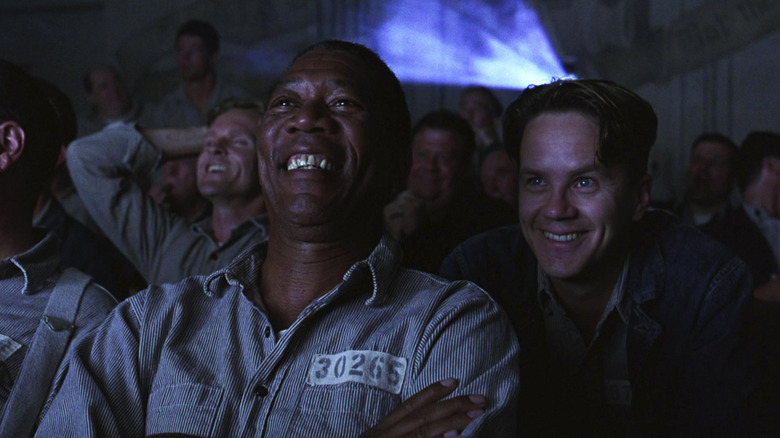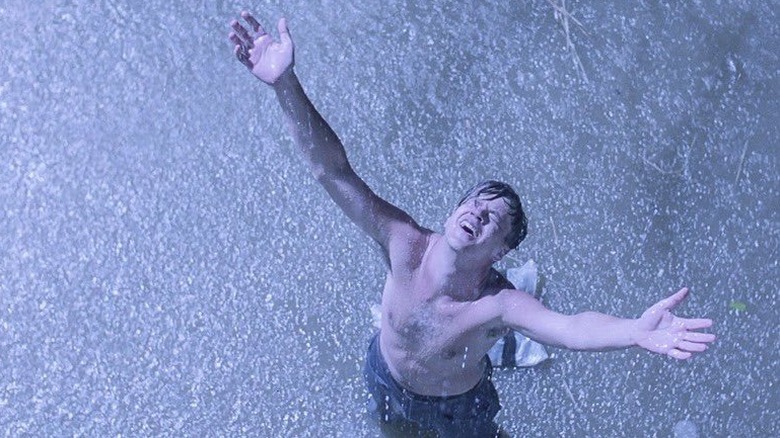Frank Darabont Knew He Was Walking A Fine Line With The Shawshank Redemption
"The Shawshank Redemption" was Frank Darabont's feature directorial debut, which makes the fact that it's widely considered one of the best movies of all time pretty wild to think about. Then again, as we'd later learn from "The Mist" and "The Green Mile," Darabont and Stephen King is typically a winning combination.
With "Shawshank" in particular, Darabont seemed to know exactly what parts of the King's novella to cut, and exactly what needed to be kept in. For instance, he made the major decision to cut any mention of what Red (Morgan Freeman) actually did to end up in prison; in the book, Red murders his wife by tampering with the brakes in her car, which ends up accidentally killing a kid along with her. It's the sort of thing that works in a novella, where we spend enough time with Red's narration to eventually sort of forgive him for doing something so heinous, but Darabont cuts it and lets his crimes remain ambiguous. All we know is that Red regrets what he did, which is all we need to know.
The hardest part for Darabont, however, was trying to create an emotionally powerful film without getting too sappy. "I knew it was a very open-hearted story and something that was, you know, this fine line between honest sentiment and being overly sentimental," he explained to Deadline in a 2019 interview. "I knew that there was always that fine line and you don't cross the line where it becomes corny sentiment."
The right amount of restraint
"There are little moments where you think, 'Ooh, if I take this beat a little too far, it's going to be cringy,'" Darabont said, "And certainly, for some people, it's already that ... But, for most people, if you get that balance right, then there's gratitude on the part of an audience."
You can see this attitude on display throughout the film: Things go to some incredibly emotional places, but the movie never lingers on them for too long. We get some devastating low points, like where Andy (Tim Robbins) sees his chance at clearing his name taken away from him for good. But then life goes on. The film moves onto the next vignette. In part thanks to the slightly detached format of sticking mostly to Red's point of view, the movie isn't tempted to dwell too long on the unimaginable pain Andy goes through. If it did, it would probably cross that line Darabont was worried about.
"I wanted it delivered honestly, you know?" Darabont explained. "I didn't want it to turn into a Hallmark Card version of a prison movie." He credits a lot of his success to Robbins' and Freeman's performances, saying the actors "always played things so honestly," but of course, a lot of the credit goes to the script's ability to make you care about these characters — even smaller characters like Brooks (James Whitmore), who never gets a ton of focus before his final scene. With "The Shawshank Redemption," Darabont made us root for these characters from the moment they first showed up on screen; if you can pull that off early, walking that fine line gets a little easier.

